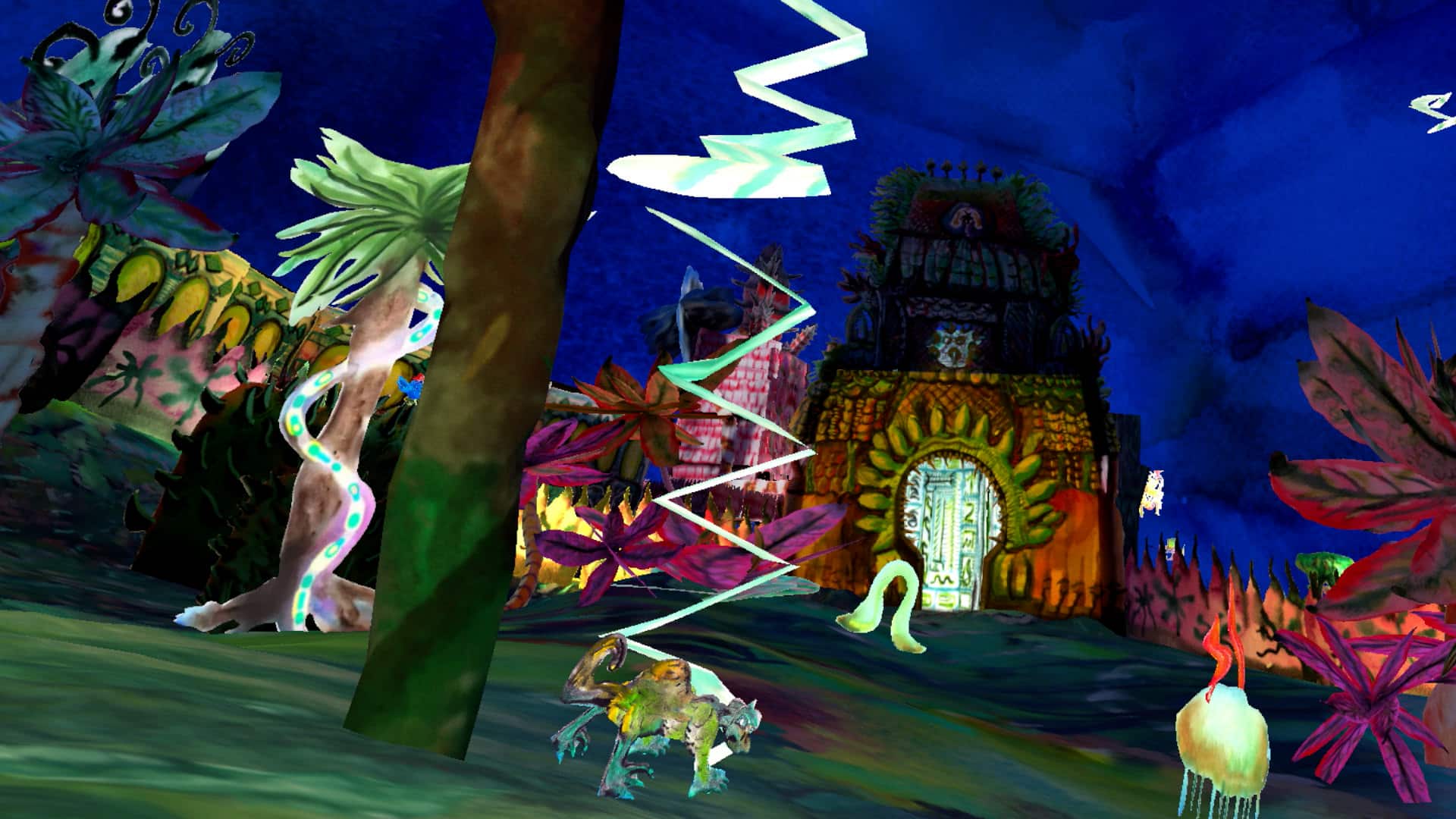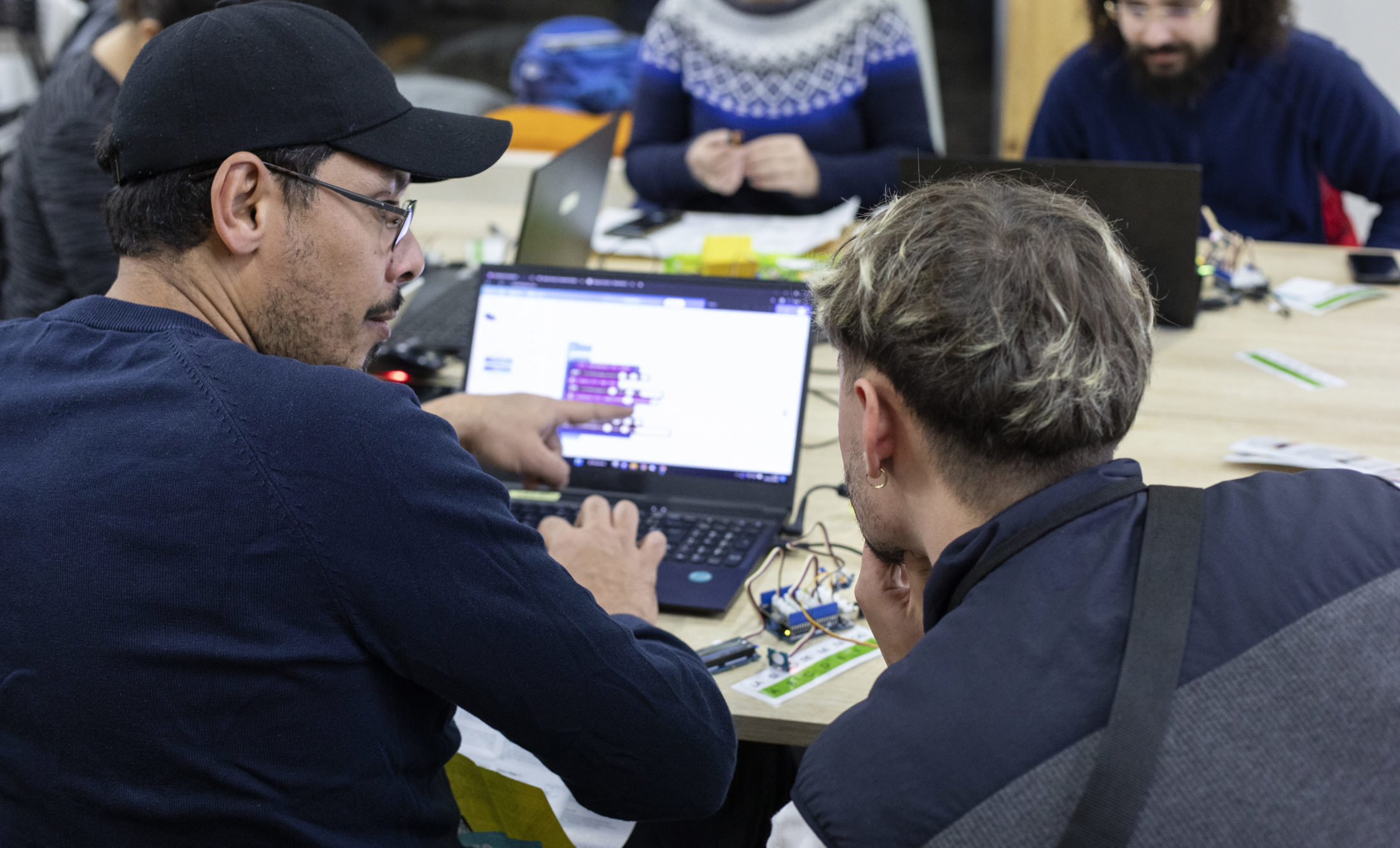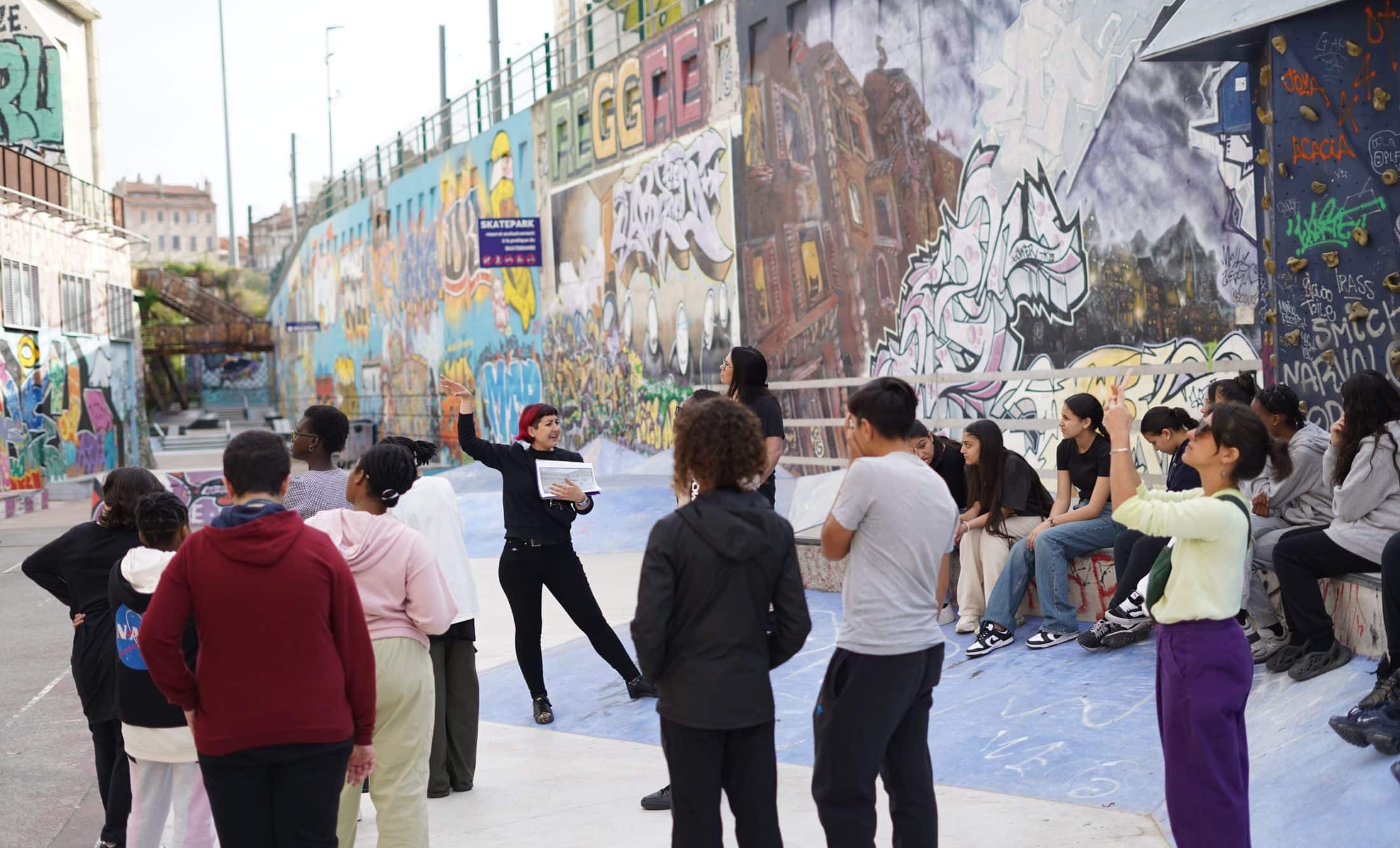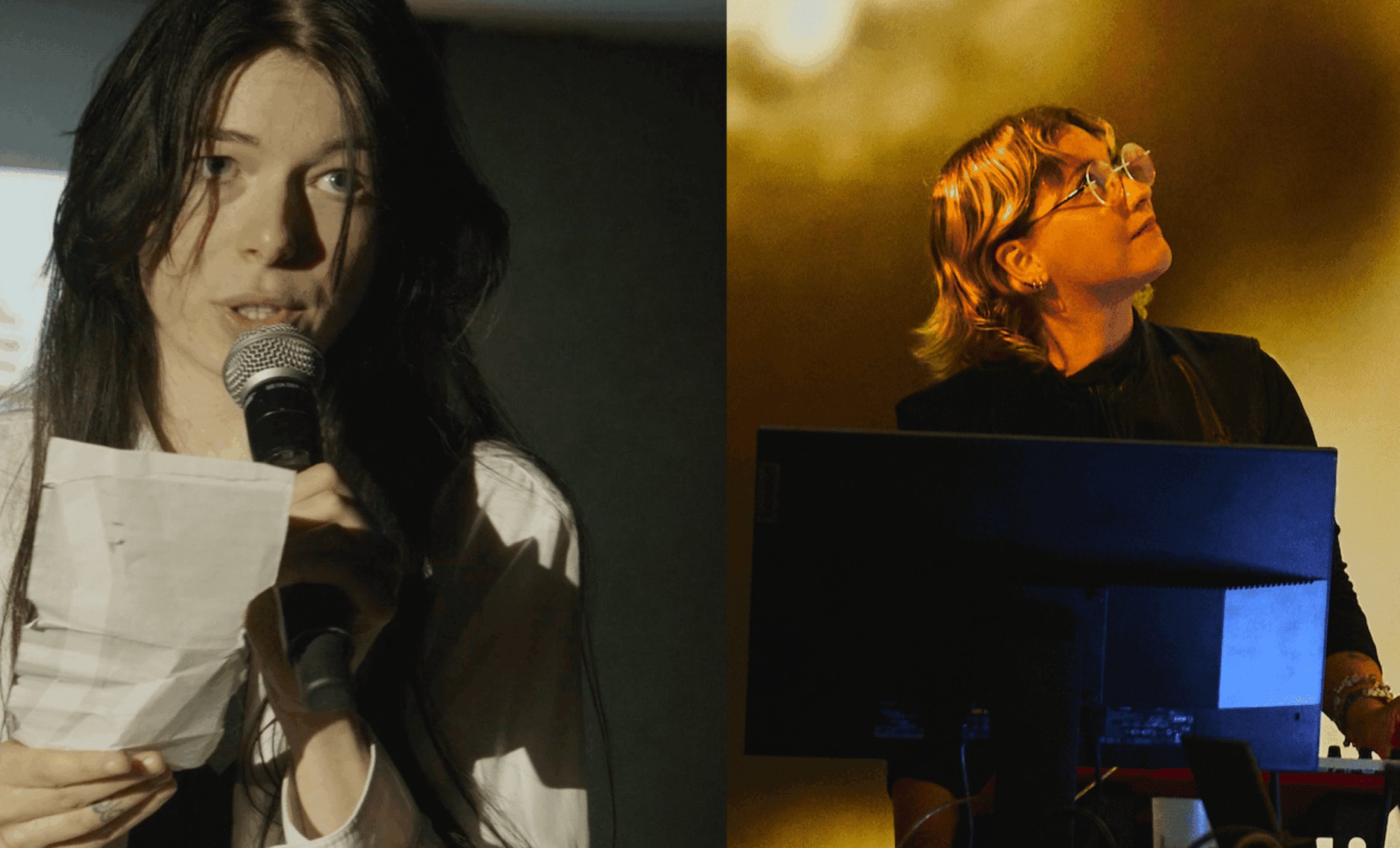
Since its first edition in 2018, with Quebec as the guest of honor at the Biennale des Imaginaires Numériques, CHRONIQUES has continued to forge strong and lasting ties with the Quebec art scene thanks to the support of the Conseil des arts et des lettres du Québec and the Délégation Générale du Québec à Paris.
This privileged relationship has strengthened exchanges with Quebec’s dynamic, avant-garde artistic scene, and in 2023 gave rise to a cross-residency in partnership with Les Productions Recto-Verso, producer of the Mois Multi international multidisciplinary and electronic arts festival in Quebec City.
Each year, this program offers a Quebec-based digital arts curator or artist research time in Marseille, while a French artist explores new perspectives in Quebec City.
For this third year, the selected artists are Morgane Baffier and Emma Forgues.
Morgane Baffier – in residence in Quebec City in January and February 2026
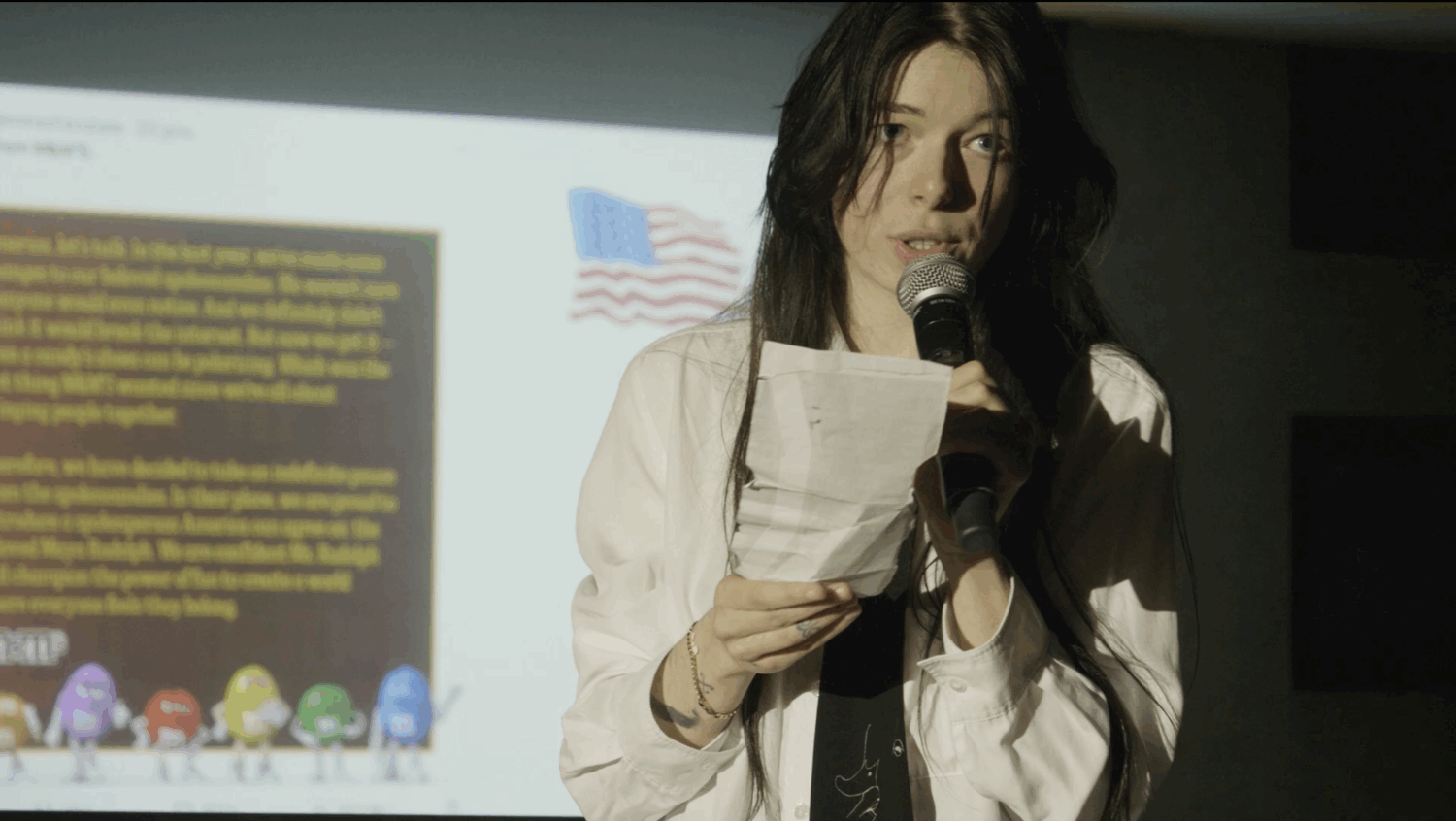
Biography
Born in 1997, Morgane Baffier lives and works in Paris. A 2020 graduate of ENSAPC, her work has since been exhibited at MAC VAL (Vitry-sur-Seine), Palais de Tokyo (Paris), Art & Design Center (Fuzhou, China), the Théâtre des expositions des Beaux Arts in Paris, the 66th Salon de Montrouge, the Mulhouse Biennale, and La Graineterie (Houilles) in 2023 for her first solo show. She is the recipient of a post-master’s research grant in artificial intelligence at the ENSP in Arles in 2024-2025, the Marfa Prize in 2023, and the MAD Prize in 2022.
His lectures have been presented at performance festivals such as the Biennale Némo in Gentilly and Les Urbaines in Lausanne, Switzerland, as well as at several art schools in France (Beaux Arts in Paris, Nantes, Limoges, Arles, Rouen, etc.). The artist has benefited from several research residencies at Fieldwork Marfa (USA), the Maison des Arts in Malakoff, the Campus Condorcet, the Abbaye de Maubuisson, the Beaux-arts in Limoges, and the AWARE association.
Residency project
Using graphics, fabricated images, and videos taken from the Internet, artist and lecturer Morgane Baffier develops all kinds of metaphysical theories and reflections, taking them to absurd extremes. In an effort to deconstruct knowledge, she appropriates the codes used in businesses, the media, and intellectual circles, and uses finesse and humor to mock the systems of power and authority that condition access to speech.
As part of her residency, Morgane Baffier wants to develop a new performance centered on the issue of data. This project is a continuation of her research into artificial intelligence. In 2025, thanks to an AI research grant, she designed her first conference-performance exploring the relationships we have with artificial intelligence (chatbots, AI girlfriends, etc.). In 2026, she wants to continue her critical research on artificial intelligence by approaching it from a new angle: data.
Emma Forgues – in residence in Marseille from January to March 2026

Biography
Emma Forgues is an interdisciplinary artist based in Montreal/Tio’tia:ke, working across installation, live audiovisual performance, and soft robotics to explore speculative ecologies and a techno-feminist imagination. Rooted in embodied research and a keen attention to process, they adopt a material-first approach that prioritizes collaborative construction, living systems, and DIY methods.
Forgues creates immersive environments where narratives, tactile materials, and digital systems interact; their pieces combine inflatable structures, digital fabrication, and real-time software. Their creations have been presented in Canada, the United States, France, Italy, South Korea, Mexico, Argentina, and Chile. Guided by care, they bring a sensory and ethical dimension to their devices. In 2026, they will continue this research at CHRONIQUES (Marseille), developing a vocabulary of sensitive, accessible, and repairable machines.
Residency project
The Clinique Autruche is an exploratory project that subverts medical rituals and objects to question the relationship between care and control. For two months in Marseille, Emma Forgues will explore an altered clinical vocabulary: interactive prototypes, tactile materials, and immersive scenography. Medical gestures are reenacted to reveal their political significance: soft skins, inflatable modules, light, and sound compose a grammar of rituals leading to playful and metaphorical “diagnoses.”
The residency focuses on ergonomics, the validation of somatic interactions, and the documentation of tests, using an accessible, repairable, and playable approach. The aim is to explore the audience’s experience, refine the staging, and document emerging forms in preparation for an initial presentation. Between tenderness and turmoil, the project questions the biopolitics of care and bodily normativity.
Cross-residency program made possible thanks to the support of the Conseil des arts et des lettres du Québec and the Délégation Générale du Québec in Paris.
In partnership with Productions Recto-Verso – Festival Mois Multi and La Friche la Belle de Mai – Marseille.
